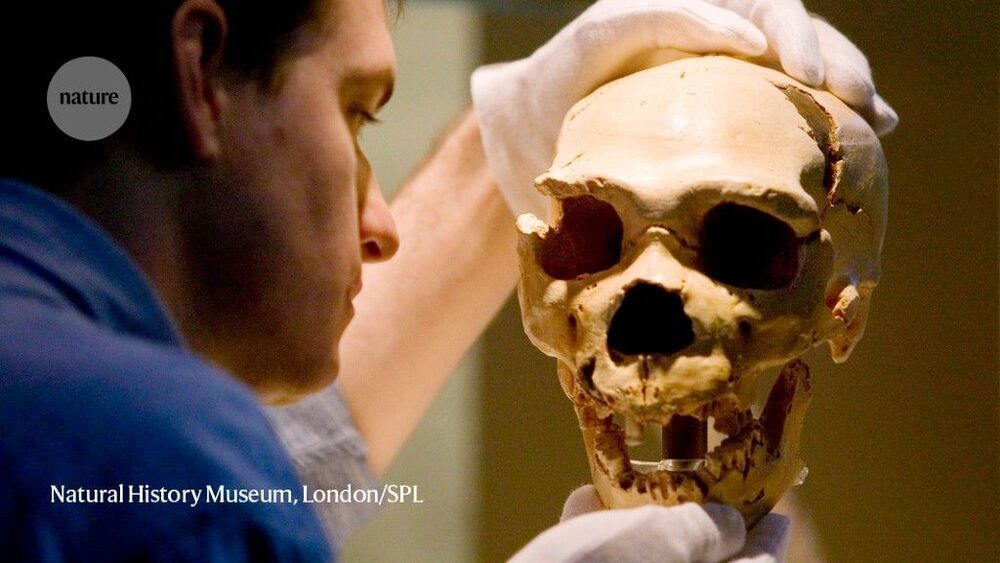“It’s an extraordinary paper with some extraordinary claims,” says Gray Camp, a developmental biologist at the University of Basel in Switzerland, whose lab last year reported2 growing brain organoids that contained a gene common to Neanderthals and humans. The latest work takes the research further by looking at gene variants that humans lost in evolution. But Camp remains sceptical about the implications of the results, and says the work opens more questions that will require investigation.
Humans are more closely related to Neanderthals and Denisovans than to any living primate, and some 40% of the Neanderthal genome can still be found spread throughout living humans. But researchers have limited means to study these ancient species’ brains — soft tissue is not well preserved, and most studies rely on inspecting the size and shape of fossilized skulls. Knowing how the species’ genes differ from humans’ is important because it helps researchers to understand what makes humans unique — especially in our brains.
The researchers, led by Alysson Muotri, a neuroscientist at the University of California, San Diego, used the genome-editing technique CRISPR–Cas9 to introduce the Neanderthal and Denisovan form of a gene called NOVA1 into human pluripotent stem cells, which can develop into any cell type. They cultured these to form organoids, clumps of brain-like tissue, up to 5 millimetres across, alongside normal human brain organoids for comparison.
